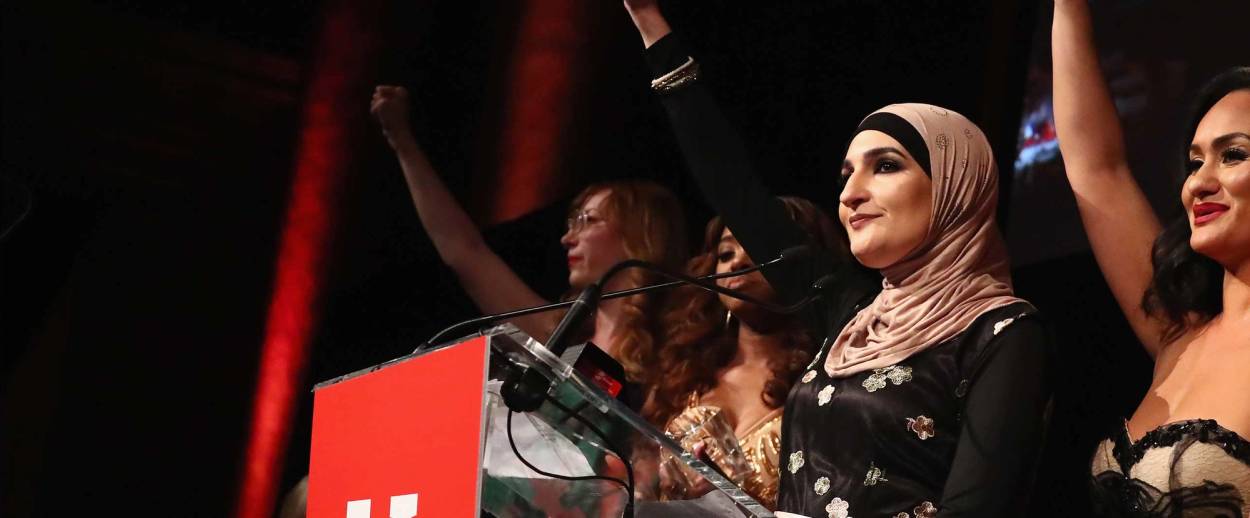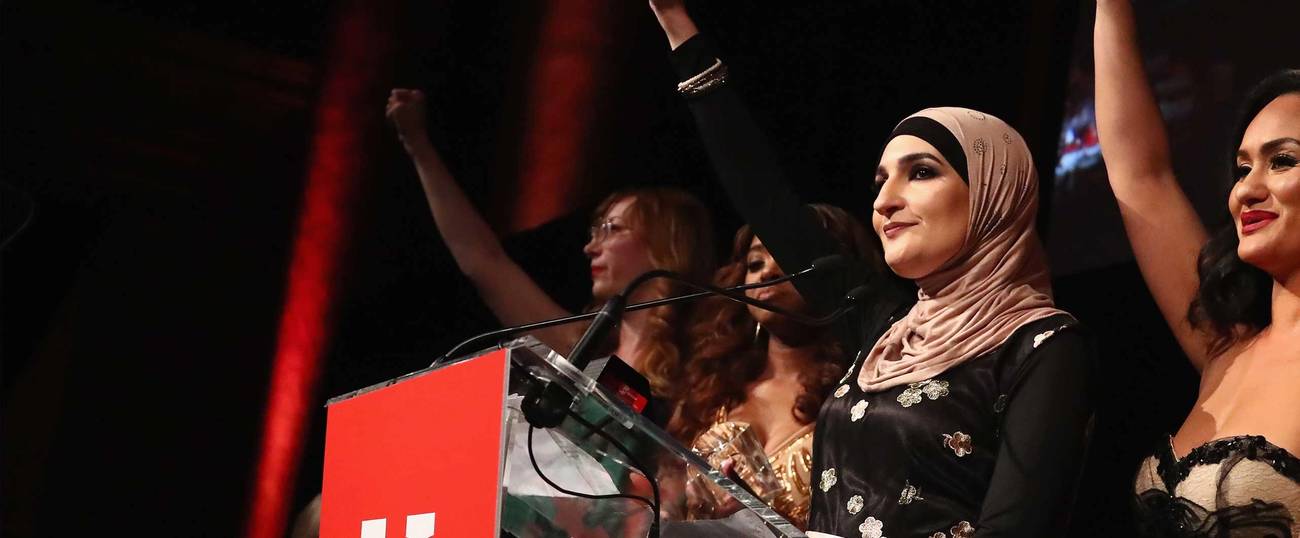Linda Sarsour’s Way of Seeing
Why have so many Jewish leaders put their weight behind an activist whose separatist rhetoric is cloaked in the flaccid language of human rights?




Too much has already been written about Linda Sarsour, the activist who is, depending on your point of view, either a herald of social justice or a harbinger of a particularly vitriolic strand of progressive politics that is particularly hostile to Israel and, perhaps, Jews. Like the other great political con artists of our age (see under: Trump, Donald) Sarsour, too, deftly orchestrates her political career as a sort of Three-card Monte: Shuffle your hands fast enough, and people will be confused about where it is that you actually stand. Why, then, give her more attention? Because last week, a roster of rabbis and Jewish communal leaders signed a May 31 letter in support of Sarsour, and that support is worth parsing.
“We may not agree with Sarsour on all matters,” reads the letter. “We do not offer our stamp of approval to every tweet or message she has ever posted. But in this time, when so many marginalized communities in our country are targeted on the streets and from the highest offices of government, we are committed to bridging communal boundaries and standing in solidarity with one another. With Sarsour and others, we work as allies on issues of shared concern and respectfully disagree when our views diverge.”
Hallelujah! Who, after all, would take issue with bridging boundaries and working as allies? The answer, ironically, is Linda Sarsour.
Speaking last month at Dartmouth College, Sarsour was asked by a student to comment on a highly offensive and vulgar tweet directed at Ayaan Hirsi Ali, the genital mutilation survivor who is a vocal critic of radical Islam and its brutal treatment of women. Rather than answer the question, Sarsour denied the student his right to ask it: “This is an event organized by an Asian American, right?” she asked. “Talking about communities of color who are being directly impacted at this moment. And I have a young white man in the back who is not directly impacted by any of the issues I mentioned.”
You hardly have to be a Talmudic scholar to understand what Sarsour is saying. Your right to speak, she believes, depends on your group affiliation. You are judged not by the content of your character but by the color of your skin. And when another group organizes an event, then sit down and shut up if you even bother showing up at all.
This way of seeing the world as tribes competing for primacy is not only profoundly non-American but un-American as well. It’s the logic of the Hutu telling the Tutsi to expect retribution now that the balance of power has shifted. It’s the language of Milosevic lashing out at those he saw not as fellow Yugoslavs but as Croatians or Bosnians or Kosovars. It’s traditional suspicion and separatism couched in the flaccid language of human rights. It should fool no one.
It is sad, then, and deeply disturbing, that so many otherwise excellent Jewish leaders and thinkers are rushing to position themselves by Sarsour’s side. The question here isn’t whether or not one supports Sarsour’s views on Israel, BDS, or any other political issue; the question is whether one is willing to align oneself with a bigot who proclaims herself a victim while working assiduously to shut up anyone who dares to question her views. It’s precisely to defend us from people like Sarsour that the ADL was formed; to see the organization now rush to her defense in a misguided attempt to appear righteous and impartial is disheartening. We Jews have thrived in America because it allowed us, along with anybody else, to stand up and speak whenever we wished; anyone who suppresses the same right is not, and will never be, our ally.
Related: A Test for the anti-Trump Movement
Liel Leibovitz is editor-at-large for Tablet Magazine and a host of its weekly culture podcast Unorthodox and daily Talmud podcast Take One. He is the editor of Zionism: The Tablet Guide.